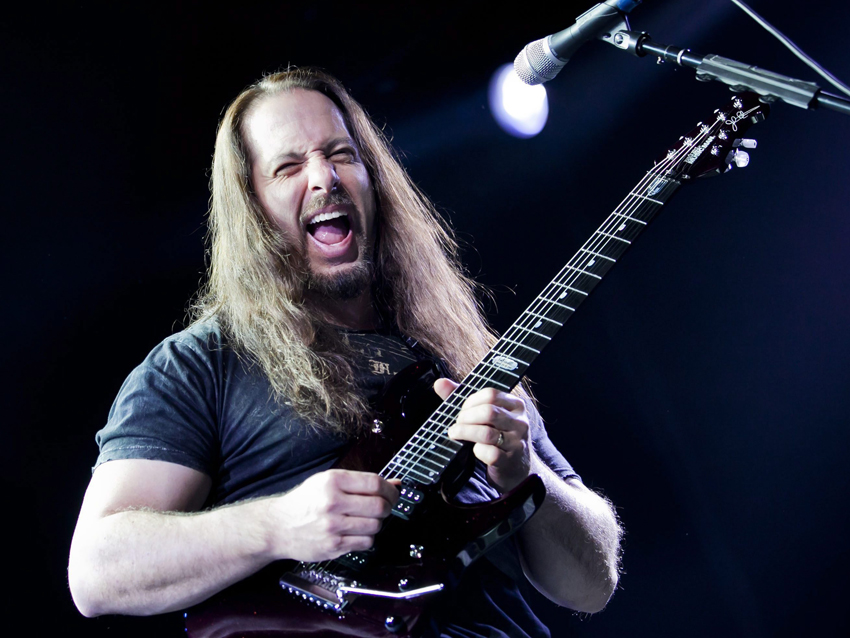
Dream Theater's John Petrucci: the 11 greatest prog-rock albums of all time
“I would say my introduction to prog-rock occurred when I heard Yes,” says John Petrucci, Dream Theater’s guitar king. “When I was growing up and getting into music, I was listening mostly to rock – Zeppelin, AC/DC, Sabbath. It’s usually the older brother of a friend who introduces you to something new, and that’s the way it was for me. ‘You gotta hear this!’ my friend’s older brother said, and he held out a copy of Fragile."
According to Petrucci, Fragile ignited something in his soul, and he realized that rock could transcend the confines of blues-based structures. "Yes had so much going on," he says. "Their songs were longer than three minutes, and they went way beyond guitar, bass and drums. There were keyboards – lots and lots of keyboards! Things weren’t so straight-ahead with Yes; they didn’t have to limit themselves to 4/4. But the cool thing was, they were still a rock band – guys with long hair, tons of equipment, cool lights and all that good stuff.”
By the time he attended the prestigious Berklee College Of Music, Petrucci says that his musical tastes were pretty much set. Still, he admits, there were surprises. "I remember meeting a guy who was carrying a Chapman Stick," he says. "I had never seen such a thing before. ‘What is that?’ I asked him. And he was like, ‘It’s a Stick. You know – Tony Levin, King Crimson…’ I didn't know. So there were still some new things for me to check out on the progressive side of things."
At Berklee, Petrucci and bassist John Myung, a friend since middle school, met drummer Mike Portnoy, and the three students formed Majesty, the genesis of the group that would ultimately become Dream Theater. Although the band quickly became heralded in prog-rock circles, Petrucci says that the members never talked in those terms.
"We just wrote the kind of music we wrote," he states. "People heard the first Dream Theater album or some of our demos, and they’d be like, ‘So, do you guys listen to Kansas? You sound like some of those prog bands.’ It was surprising, in a way, because we were these guys from Long Island – big Rush fans, big Yes fans, big rock and metal fans."
But the prog-rock spirit, and the musical lessons he gleaned from his teenage listening years, proved essential to Petrucci's triumphs as a player and songwriter. "I followed my instincts," he says. "My biggest desire as a musician has always been to try to do something different, something nobody else has done before.”
On the following pages, John Petrucci runs down (in alphabetical order by artist) what he calls the 11 greatest prog-rock albums of all time. "All the records here are by bands and artists that achieved the goal of doing something new and exciting over and over again.”
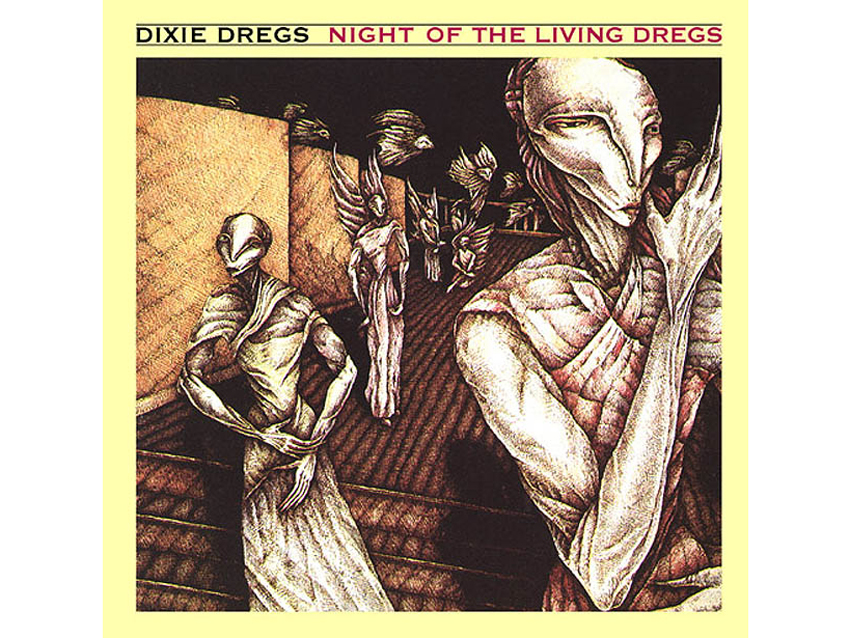
Dixie Dregs - Night Of The Living Dregs (1979)
“Steve Morse is my all-time favorite guitar player. Hearing a guitarist play rock in a bluegrass style really opened my eyes. Those fast, clean-picked 16th notes going through chord changes almost reminded me of what violinists would do with etudes and concertos, this constant succession of notes pushing the songs to the next level.
“Once I decided I wanted to get better on the guitar, I began to get turned onto instrumental music. The Dregs, Al Di Meola, Allan Holdsworth – they all made a real impact.”
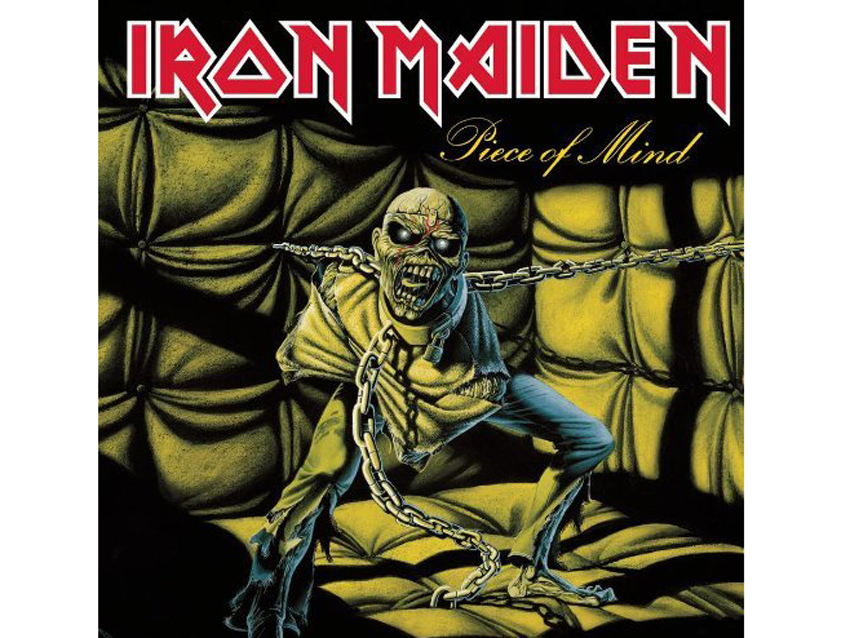
Iron Maiden - Piece Of Mind (1983)
“A lot of people might not see Piece Of Mind as being progressive, but I think I’d be remiss if I didn’t include it. I got into Maiden with The Number Of The Beast, but this is the record that I played to death.
“I think this is the first album where I was compelled to learn every song on the guitar. I had to know how to play every note of every solo on the entire album. And by doing that, I learned a lot about how the band wrote and arranged songs. They were also into storytelling. Whether that story was from a book or a movie or something original, there was a lot of vivid imagery going on.
“I love both guitarists, for different reasons. One of the biggest things I picked up from Adrian Smith was how to use vibrato well. I’d put Piece Of Mind on the turntable, slow down the speed, and when I heard a note being held out at half-speed – ‘rrraaaaahhhh, rrraaaaahhhh,’ you know, the wobbling? – that’s when I really figured out vibrato.
“And Dave Murray’s solos were so fun. He did a lot of legato and whammy bar stuff, and wah-wah stuff, too – that whole rock ‘n’ roll thing. A great player.”
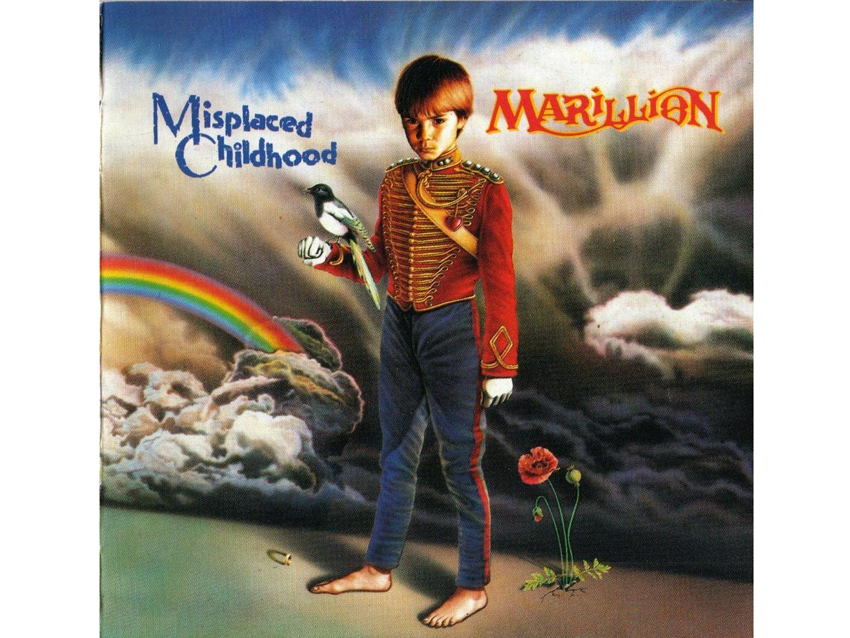
Marillion - Misplaced Childhood (1985)
“My friend Keith Leedham, who was two years older than me, turned me onto Marillion. ‘You’ve gotta hear this band!’ – that’s how that went. I listened to this album and was like, ‘Wow!’ I got lost in it. I can remember every moment about it. It’s one of those records that becomes the soundtrack for a certain point in your life.
“The most influential thing, besides the actual music, was Steve Rothery’s thematic guitar playing. You hear this a lot in Dream Theater, where the guitar takes on a theme. The guitar rides out a melody, and the melody becomes a focal point for a song. That’s the whole Marillion thing. If you can achieve the Rothery Misplaced Childhood approach, it’s like hitting nirvana!
“Also, it’s the first instance I can think of in progressive music where the lyrics are so soul-exposing. This isn’t some made-up story; you’re finding out what this person went through. Those emotions being sung in such an expressive way over this incredible music, it had a tremendous impact on me as a lyricist and songwriter.”
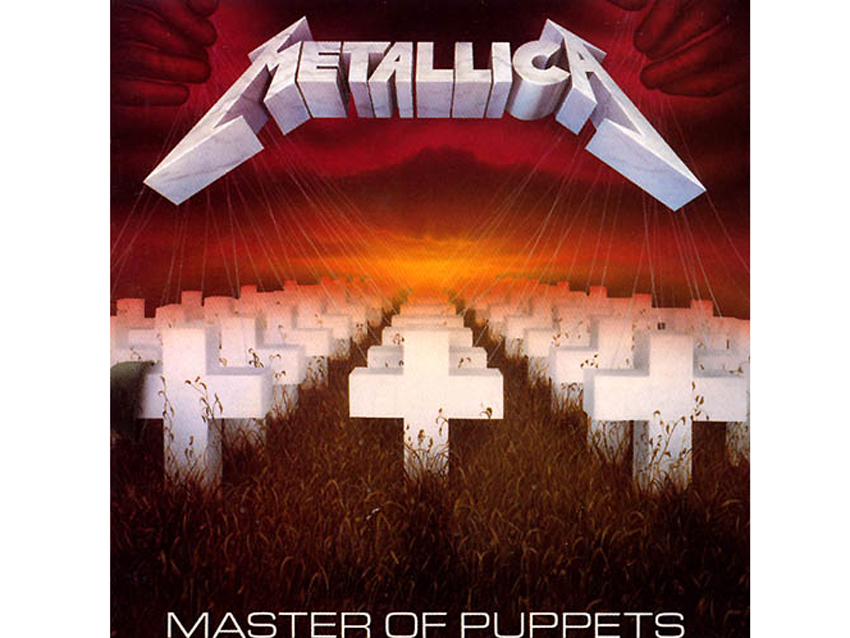
Metallica - Master Of Puppets (1986)
“A massively influential album on me. The guitar sound is something I really related to, still relate to and continue to strive for. That tight, chugging, riffing, powerful right hand, rhythmic interlocking with the drums – that became a signature in Dream Theater. It’s a total, total staple of the DT nutrition pyramid.
“Here and there, I heard some earlier Metallica songs before Puppets, but this is the record that really did it for me. I absolutely fell in love with it. People might say, ‘Oh, it’s not really progressive,’ but it is. The song lengths, the arrangements, and again, the guitar sound and that precise, heavy-rhythmic right hand – it became essential to the Dream Theater sound.”
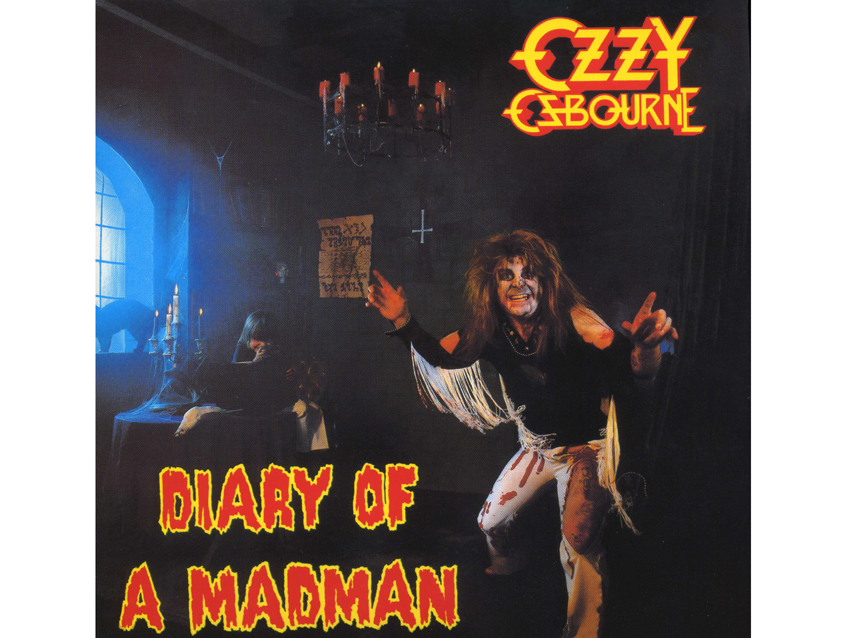
Ozzy Osbourne - Diary Of A Madman (1981)
“Here’s an example of a style where the musical backdrop is very dark and classical. Take that and couple it with Randy Rhoads, a total guitar hero, and you’ve got something amazing.
“With Randy, the guitar is the song. In his hands, the electric guitar was a vital compositional force. It’s different from Yes and Marillion, where the guitar was used as an orchestral instrument. Randy's playing was pretty much everything – one guitar as the main musical and sonic instrument.
“The classical influence in the chord progressions, the diminished and minor-sounding stuff – tell me you don’t hear that in Dream Theater all the time. And there’s real storytelling here. A very important record.”
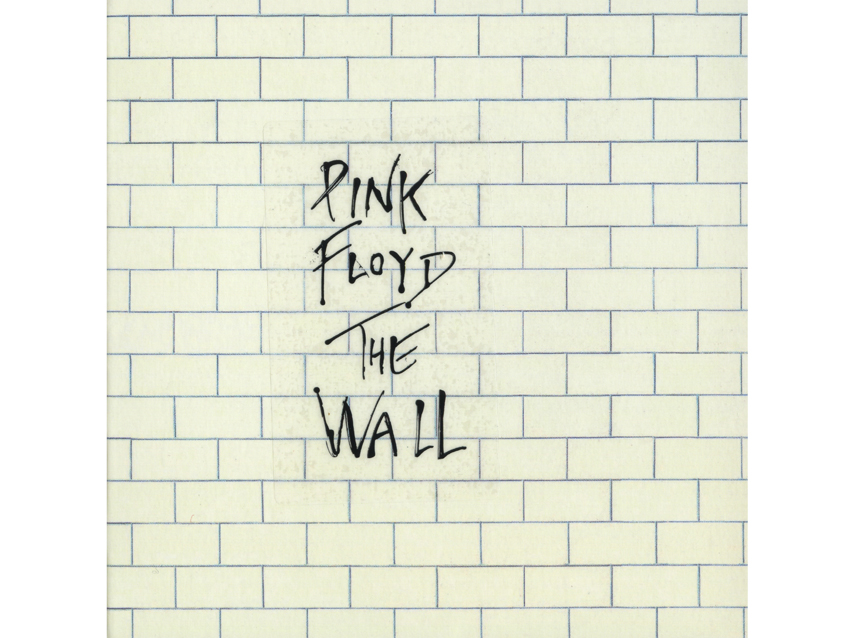
Pink Floyd - The Wall (1979)
“Dark Side Of The Moon is a great album, but The Wall is progressive music in a different fashion. It’s not filled with crazy song arrangements and odd-time signatures; rather, it tells a really, really complicated and deep story through music and lyrics. Somehow, they were able to tie it all together.
“It’s like a big idea that just keeps going. It wasn’t just that that you had conceptual songs, and it wasn’t just that you had a conceptual album even. With The Wall, it’s everything: the album, the songs, the lyrics, the tour, the movie – it all relates to one story.
“And, of course, there’s David Gilmour – such a brilliant bluesy guitar player with a complete grasp on how to use his instrument to express melody.”
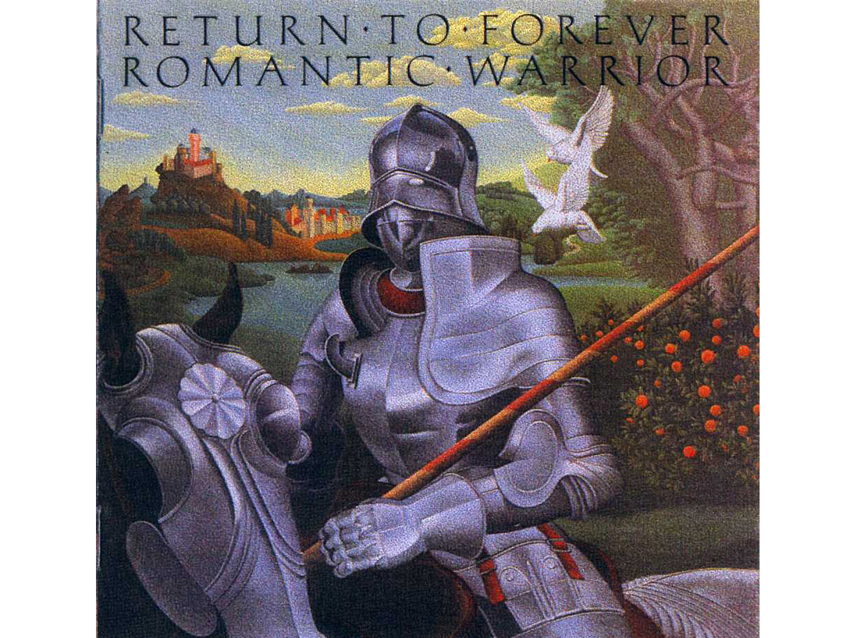
Return To Forever - Romantic Warrior (1976)
“I was a huge Al Di Meola fan. Casino was a big record for me, especially when I started getting better on the guitar and wanted to push myself. It blew me away. And from the Casino album, I got turned onto Return To Forever.
“It’s probably more from the fusion side of things – like The Dregs, who were another very fusion band, as well – but that’s an important element in Dream Theater. When we got together, not only were we only into the prog side – the Yes side, the Rush side, the long songs and the storytelling – but we were also into the Maiden metal side.
“We used all of that with fusion, a strong emphasis on instrumental fireworks – everybody striving to be at the top of their game on their instruments, being able to improvise, reacting to sections of music that just went off.
“A lot of progressive bands have some of that element, but it’s more prevalent in fusion bands, where you’re expected to be a monster. It’s all in there on this record.”
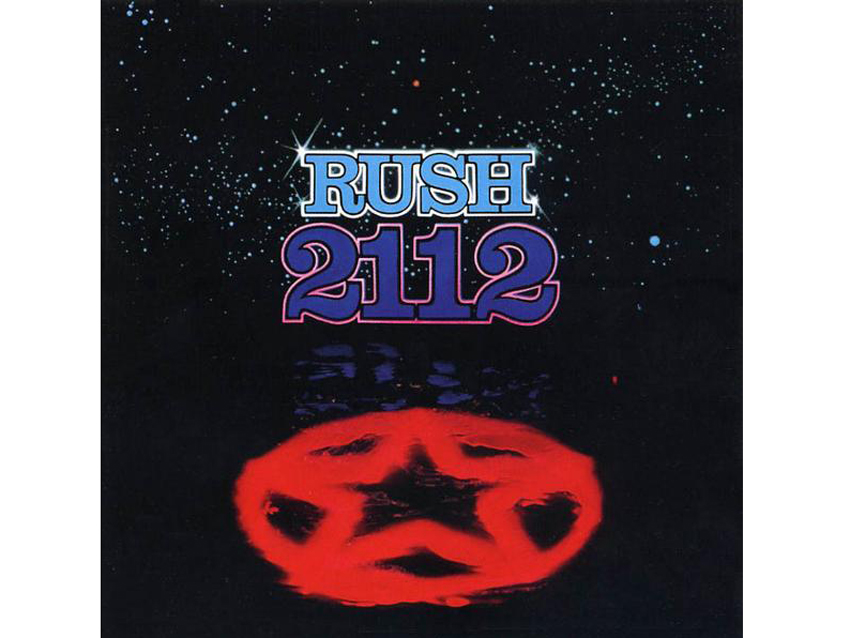
Rush - 2112 (1976)
“Rush are my biggest influence and favorite band. Just the idea of this concept album, of a story being told and songs as vehicles to tell the story – it’s unbelievable. I would get lost in this album. I wanted to know what they were talking about. ‘Who’s this guy? What’s happening?’ It took you to another world.
“Beyond his incredible drumming, there’s Neil Peart as a lyricist. I would say he’s been the biggest influence on me in that respect. The way the tale evolves is astonishing, using the guitar as an actual part of the story – that really drew me in. To this day, 2112 is one of the greatest albums I’ve ever heard.”
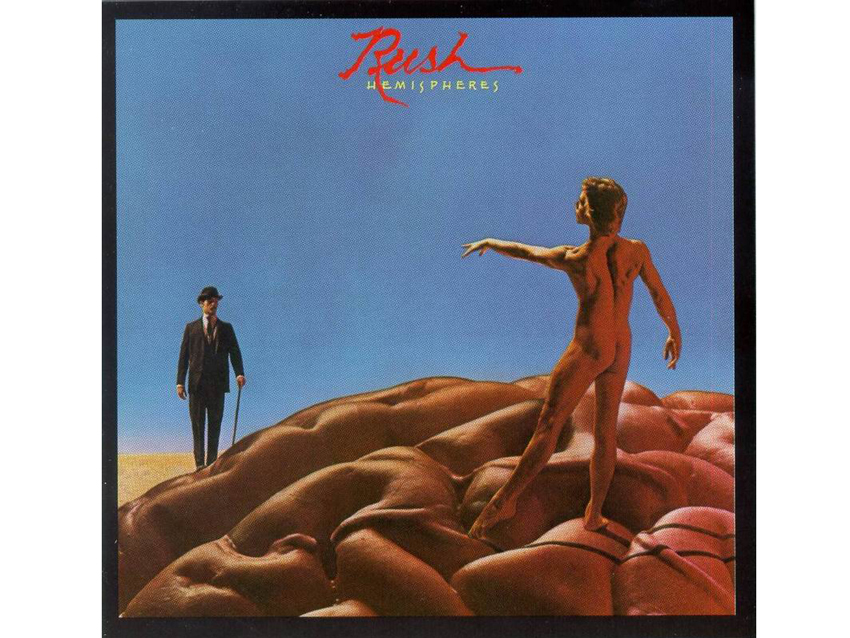
Rush - Hemispheres (1978)
“I remember when a friend first played me The Trees, I was like, ‘Whoa! Who’s singing that?’ Geddy Lee’s voice was so high. But it ended up being something that I absolutely loved. I went back and checked out Rush’s first record, and I thought, ‘Man, people just don’t sing like this.’ But that’s what made it so appealing.
"You’ve pretty much got everything here. The songs are long, the arrangements are unconventional, and there’s some really cool, extended instrumental passages. Rush weren’t afraid to let their songs break down so they could spend some time building them back up again. And sometimes a song would have multiple themes, too, which is something very few bands do.
“It’s amazing how big Rush sounds here. The interplay between the guitar and bass is incredible. Alex and Geddy are so locked in, going off on all these unison runs. I love Alex’s choices, the way he plays power chords with open strings on top. And when you combine that with the way he uses the chorus effect – to this day, I apply all of this information to my own style.”
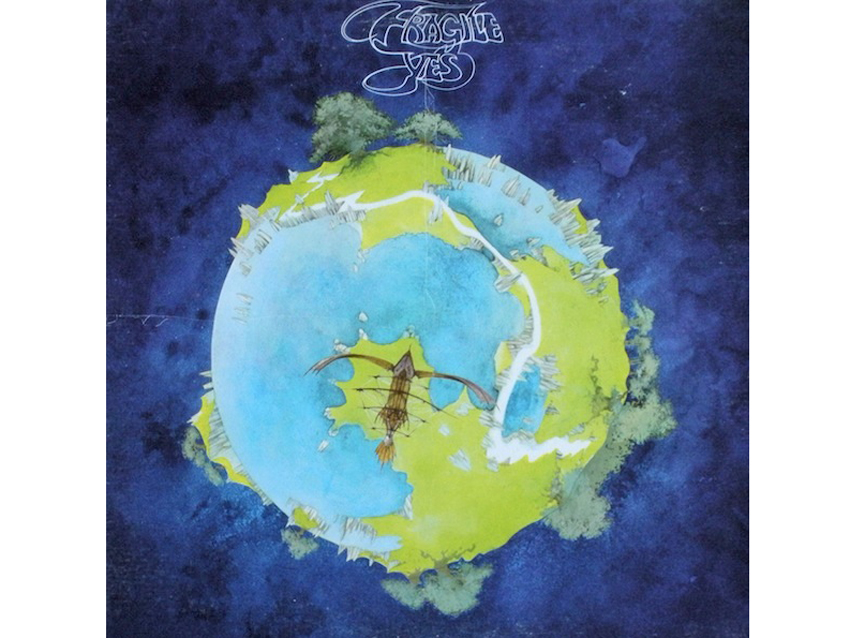
Yes - Fragile (1971)
“This is the album that really showed me that orchestration can go beyond the normal rock band format. The way that piano, organ and orchestral sounds could be added into a rock band setting was so dramatic.
“Of course, I totally tried to learn to play Roundabout. One of the intriguing things about Steve Howe is how unconventional his guitar parts are. He plays in a way so that the guitar is orchestrated within the arrangement of the other instruments. It’s not just typical guitar player stuff like, ‘Well, I’ll play some power chords here, then I’ll do a solo there.’ He plays things that are interactive as lines and motifs.
“There’s 12-strings, acoustics, electrics, pedal steel, volume pedal swells – all that good stuff. There’s so many interesting applications of the guitar, and Steve proved that it could be a dynamic orchestral instrument in a rock band.”
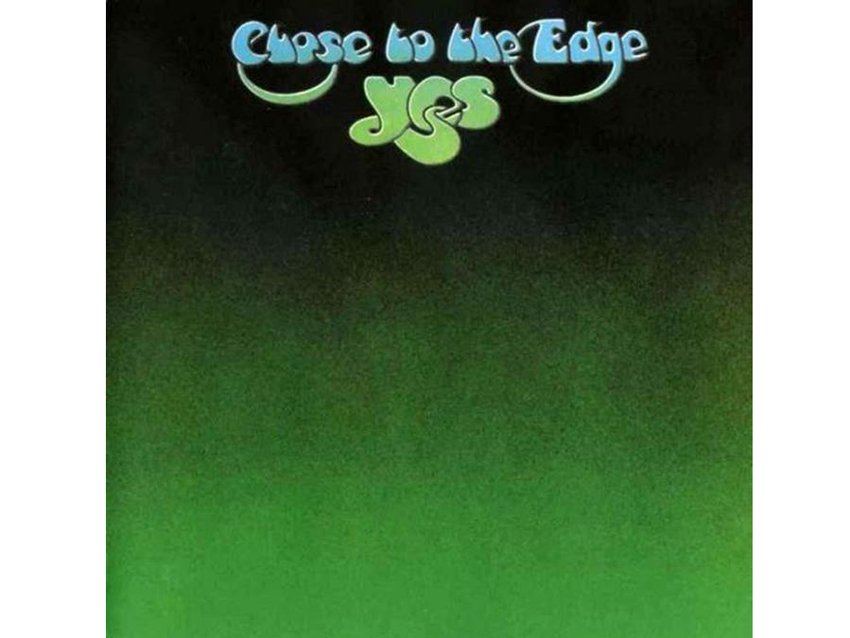
Yes - Close To The Edge (1972)
“There are certain records I remember listening to so attentively, almost as if I were watching a movie. You memorize every section of the music, you look forward to hearing certain parts – it just reaches deep inside of you. Close To The Edge is one of those records.
“The title song has a breakdown in the middle where it gets very trippy, and then it creeps up and has the most beautiful melody. I used to listen to that over and over and over. It’s very grand and thematic, and that’s something that was a huge influence on Dream Theater – the larger-than-life approach. Big melodies, big sounds – it's overwhelming. Those were all elements, the sound and and style, that we wanted to shoot for.
“The singing aspect, too: You listen to Jon Anderson, with his high voice and all the rich harmonies – it’s different. It’s not what you would typically hear a rock band singer do. His voice is very pretty, and it made the music even more beautiful.”
Joe is a freelance journalist who has, over the past few decades, interviewed hundreds of guitarists for Guitar World, Guitar Player, MusicRadar and Classic Rock. He is also a former editor of Guitar World, contributing writer for Guitar Aficionado and VP of A&R for Island Records. He’s an enthusiastic guitarist, but he’s nowhere near the likes of the people he interviews. Surprisingly, his skills are more suited to the drums. If you need a drummer for your Beatles tribute band, look him up.
